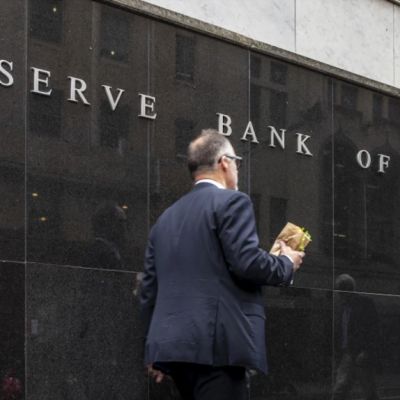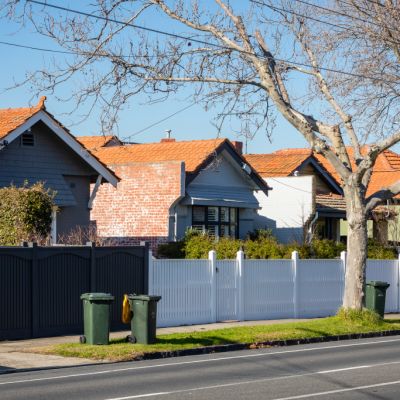Serehnonn bought her first home but didn’t expect mortgage to go up six months later

Serehnonn and Dominic Lowe bought their first home during the property boom last year to lock in some certainty after six years of renting in Sydney and in the hopes of starting a family.
That was upended when the Lowes’ mortgage repayments went up less than six months after taking out a home loan with a rate they expected to hold steady after Reserve Bank governor Philip Lowe said he did not expect rates to rise before 2024.

Since they bought in December, the cash rate has gone up five months in a row, including another increase of 50 basis points on Tuesday to 2.35 per cent. These rises have left many first home owners who bought at rock-bottom interest rates and sky-high prices facing higher repayments years earlier than expected.
The couple borrowed less than the bank suggested and bought in their home town of Newcastle – where housing was cheaper than Sydney, which wasn’t even an option – but they are still feeling the pinch.
“We definitely didn’t expect it to be raised so quickly,” Serehnonn said. “It’s just already such an expensive time buying a home and to have that thrown on top, that is definitely tough.”
Now their plans of starting a family have been put on hold as rapidly rising rates affect their savings buffer.

“It’s weird how much it impacts our journey to have kids. Do we need to push this back again by another year just so we have this buffer because we didn’t think interest rates would rise?” she said.
“We bought thinking we needed to get into the property market. We were so scared we were going to miss out.”
Serehnonn has also taken on a second job, working 10 to 15 hours a week from home, to offset the increase.
RateCity research director Sally Tindall said families would be feeling the pain, including those coming off fixed mortgage rates.

Though banks had assessed borrowers’ capacity to repay loans as rates rise, some would definitely have to change their lifestyle due to the higher repayments.
“It’s just a tricky time for a lot of families,” Tindall said. “It’s going to put a lot under the pump.”
In Sydney, a first-home buyer who bought a median-priced unit in July last year and fixed their loan at an average rate of 1.94 per cent could now expect to roll over to a rate of 6.74 per cent once their fixed term ends next year.
Their loan repayments would jump by $1698, RateCity modelling shows. Even if they switched to the lowest big bank variable rate, they would need to find an extra $1114 a month.
Tindall said now house prices are falling, some buyers won’t qualify for refinancing if their loan size is more than their property is worth. Those that do qualify but have equity of less than 20 per cent may have to pay the extra cost of lenders’ mortgage insurance.
Commonwealth Bank head of Australian economics Gareth Aird said fast-rising interest rates will leave many households, including upgraders and pre-pandemic buyers, in tough positions.
“For a lot of households, they will have less money available to spend on goods and services in order to meet mortgage repayments,” Aird said.
“The higher [the RBA] takes the cash rate, the more households that will find themselves in this position.”
Aird said many households and businesses borrowed money on the assumption the RBA’s statement of holding rates until 2024 was a commitment and not a conditional statement.
“A lot of people, had they known [of rate rises], they may have not borrowed as much money or felt completed to transact in the housing market last year.”
Gareth Aird, CBA’s head of Australian economics
“There was no sense that rates would go up as quickly,” he said. “That is an incredible increase in mortgage rates in a short amount of time. There would be a lot of households who would have transacted differently if they knew the rates were going up the way they are now.
“A lot of people had they known they may have not borrowed as much money or felt completed to transact in the housing market last year.”
Independent economist Saul Eslake said while economic forecasts often turn out to be incorrect and the RBA’s was a conditional statement, households were hardly to blame.
“Most people are not economic forecasters. They assume the RBA will have greater insights than they as individuals do,” Eslake said. “You can’t blame ordinary people for taking them at face value.”
He said the soaring mortgage costs would leave many households in a tight financial position, upending medium to long-term plans.
“There would be a significant cohort of people that would have come as a significant shock,” he said.
“It means a budgetary squeeze, and if they had been thinking about forgoing one income, well, that may well be harder to contemplate.”
We recommend
We thought you might like
States
Capital Cities
Capital Cities - Rentals
Popular Areas
Allhomes
More










